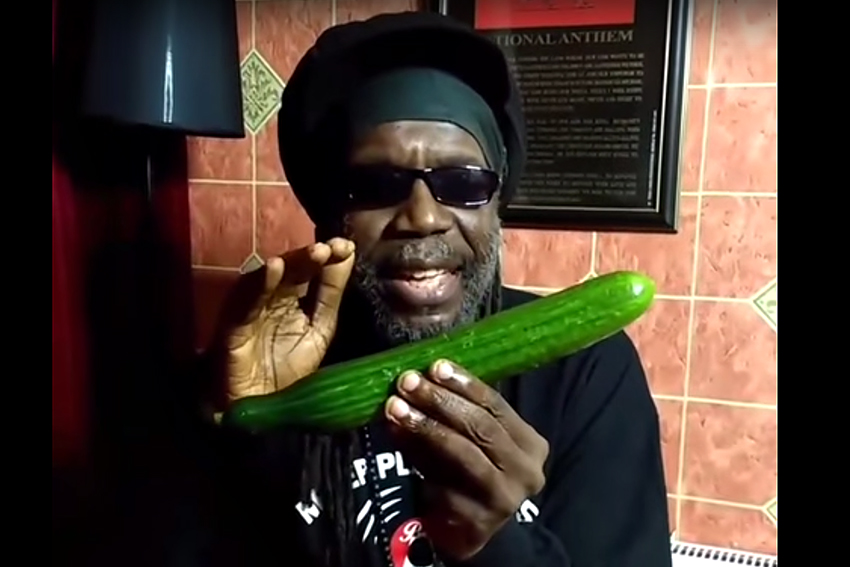Veganism went viral in March when Macka B, a 56-year-old reggae musician from England and Jamaica, posted his latest healthful hit, “Cucumber.” Macka B, a vegan social media personality, raps 15 health benefits of “cucumbas” in 50 seconds.
The musician has already produced videos about foods including kale and avocados. While Macka B is known in the social media sphere as a chill, clean and generally trustworthy face for promoting healthy living and compassion, most of his cucumber claims don’t hold up under scrutiny.
Information from Web-MD supports some of Macka B’s claims, including that cucumbers contain vitamins and minerals and are 95 percent water. Cucumbers are relatively high in Vitamin K, which prevents blood clots, and the mineral molybdenum, which contributes to increased antioxidants and boosts the immune system.
Yet, cucumbers are not actually “high” in other vitamins and minerals. According to the USDA, cucumbers contain only minute amounts of other vitamins and minerals such as Vitamin A and potassium. Nutritional science professor Lydia Steinman said she’s skeptical of many of Macka B’s statements, including cucumber’s high nutritional value.
“It certainly has nutrients in it and it’s good to incorporate into your diet, but I don’t see cucumbers as a nutrient dense food,” Steinman said.
Also, there is little data to support Macka B’s claims that silica promotes hair and skin health. Many articles claim that cucumbers contain silica, and there is an entire Ted Talk dedicated to the cucumber’s role in bone health. Cucumbers have even been used for centuries in spas to reduce dry eyes and puffiness. But Steinman said it is unlikely that the average person will consume enough cucumbers to produce these potential benefits such as bone and skin health.
“I’ve never heard that silica increases hair or nail growth,” Steinman said. “It also sounds bogus to me that silica could be absorbed into the cells with cucumber slices on the eyes. One slice of (cucumber) could not have that much silica.”
The “Cucumber” video also contains a shout out to cucumber water to replace soda. While replacing energy drinks and soda would definitely be a healthy switch, it wouldn’t do much to increase electrolyte intake or energy. Websites such as Healthy Eating do offer recipes for low-sugar cucumber sports drinks, but 29 cups of sliced cucumbers are required to meet an adult’s daily requirement of electrolytes.
There is no evidence to support Macka B’s claims that cucumbers make you look younger, help with bad breath, or are high in fiber. According to the USDA, cucumbers are very low in fiber: one cucumber contains only 1.5 grams of fiber, only about four percent of the daily recommended fiber intake.
Overall the claims in “Cucumber” are mostly false as they portray the cucumber to be a superfood with many health benefits. In reality, cucumbers aren’t that big of a dill.















